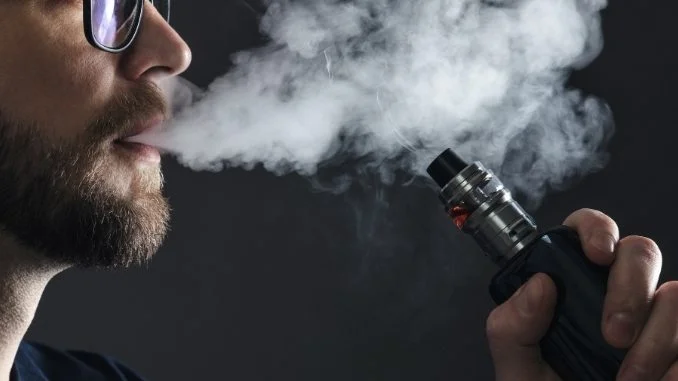
Most parents know or suspect when their child smokes, anyway they are extensively more inclined to be ignorant if the child vapes or uses other tobacco things, according to a colossal public assessment.
Driven by researchers at the University of California San Francisco, the assessment was circulated in the journal Pediatrics.
The assessment, which continued more than 23,000 individuals developed 12 to 17 years old, found that gatekeepers or guards were altogether more opposed to report knowing or suspecting that their child had used tobacco if the adolescent used just e-cigarettes, non-cigarette burnable things or smokeless tobacco, stood out from smoking cigarettes or using distinctive tobacco things.

The researchers also found that when gatekeepers set strong nuclear family leads about not using tobacco – applying to all tenants – their youths were less disposed to start tobacco use. Essentially chatting with kids about not smoking was far less fruitful. The examination conveys at 9:01 p.m. PT, Oct. 4, 2020, in Pediatrics.
“We understand that without tobacco homes are a key mechanical assembly to help prevent smoking by kids,” said relating and senior maker Benjamin Chaffee, DDS, MPH, PhD, an accomplice instructor at the UCSF School of Dentistry. “What studies haven’t assessed is the methods by which sans tobacco homes stack confronting various techniques and how much sans tobacco home rules may help with other tobacco things past smoking.”
“Tobacco use by adolescents is upsetting, and dental authorities, like all clinical consideration providers, should be stressed over hindering youth tobacco use,” Chaffee said.

Over the span of the latest decade, the smoking scene has definitely changed, especially among youth, for whom cigarette smoking has declined while the usage of electronic cigarettes took off. A year back, the Centers for Disease Control and Prevention uncovered that more than 1 out of 4 optional school understudies was vaping.
The new assessment used data from the Population Assessment of Tobacco and Health (PATH) Study to explore parental cognizance of youth tobacco use and the piece of nuclear family tobacco regulates in preventing smoking. Despite cigarettes and e-cigarettes, the examination looked at non-cigarette combustible things (checking stogies, lines, hookahs, and bidis), and smokeless tobacco (tallying snuff, gnawing tobacco, snus, and dissolvable tobacco).
It found that gatekeepers will undoubtedly know or suspect that their adolescent was using a tobacco or nicotine thing if the child was more settled, male, perceived as white, and lived with a tobacco customer, similarly as though the parents were less trained. Mothers were singled out as more careful than fathers.
The researchers moreover found that teenagers and tweens living in homes with the strictest rules confining tobacco use were 20-26 percent less slanted to start using tobacco, stood out from youth living in the most tolerant homes.
The specialists suggest that parents:
– Don’t smoke;
– Create sans tobacco home conditions that consolidate all bits of the home;
– Establish extreme standards against all tobacco use that apply to all people from the nuclear family;
– Have incredible, clear correspondence with youth about not using tobacco.
“Low parental knowledge of e-cigarette use gives a bogus portrayal of rising public thought with respect to youth vaping,” said co-maker Tsu-Shuan Wu, an understudy at the UCSF School of Dentistry. “Youth tobacco use is an amazing general prosperity concern, paying little psyche to the tobacco thing used, and gatekeepers accept a noteworthy part in tobacco evasion.
“Making without tobacco home circumstances is one philosophy gatekeepers can use to set principles and suspicions with respect to tobacco use,” she said. “Moreover, for clinical administrations providers, raising parental care should be fundamental for all around heading and tobacco-expectation maintain.”
